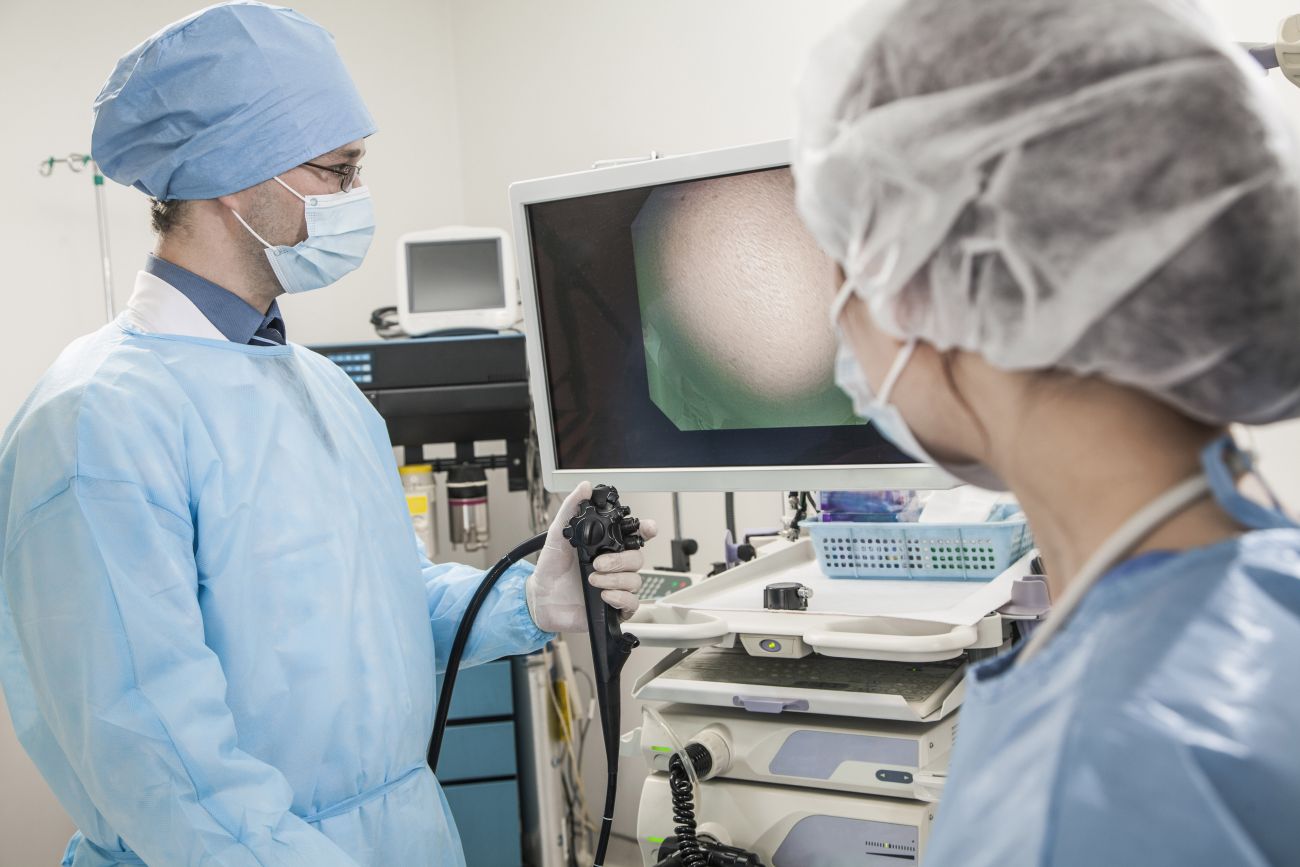How is colorectal cancer diagnosed?
If your screening test detects traces of blood, DNA changes, a suspicious polyp or another area of concern, the next step is to confirm whether the suspicious area or polyp contains cancer cells, and whether these cells may have spread. Some tests and procedures you may need include:
- Colonoscopy in which a colonoscope, a long, flexible tube equipped with a tiny camera and light source, is inserted into the rectum and colon to check for polyps or other abnormal tissue. You will be sedated during the procedure. If areas of concern are found, they can be removed or biopsied.
- Biopsy to take a sample of the suspicious growth or polyp for examination under a microscope by a pathologist. A biopsy may be done during a colonoscopy or sigmoidoscopy, too.
- Blood tests. Some patients with colorectal cancer or other conditions have a high level of carcinoembryonic antigen (CEA), a protein or tumor marker that can be detected in the blood.
- Computed tomography (CT) scan uses an x-ray machine linked to a computer to create a series of detailed pictures of the inside of the body. You may receive an injection of dye to help certain areas appear more clearly. A CT scan may detect whether cancer has spread to the liver, lungs or other organs.
- Magnetic resonance imaging (MRI) uses a powerful magnet, radio waves, and a computer to make detailed pictures of the inside of the body. An MRI may show how deep a colorectal tumor has grown or whether the cancer has spread beyond the colon or rectum.
- Endorectal ultrasound (EUS) uses a probe inserted into the rectum to produce sound waves that humans can’t hear. The waves produce echoes, and a computer uses the echoes to create a picture. The picture may also show how deep a rectal tumor has grown and whether it has spread.
- Chest X-ray to determine whether cancer has spread to the lungs.
- Genetic testing to determine if your cancer is caused by an inherited genetic syndrome such as Lynch syndrome, familial adenomatous polyposis, or MYH-associated polyposis. Although these conditions are very rare, having a genetic syndrome means that your treatment plan may include a different or more extensive surgery. Your cancer care team may suggest you seek genetic testing or counseling if you have:
